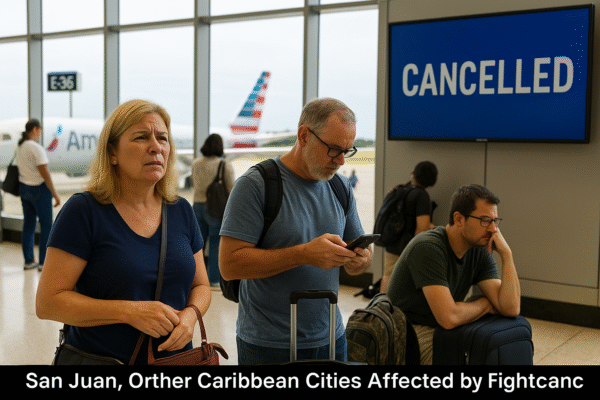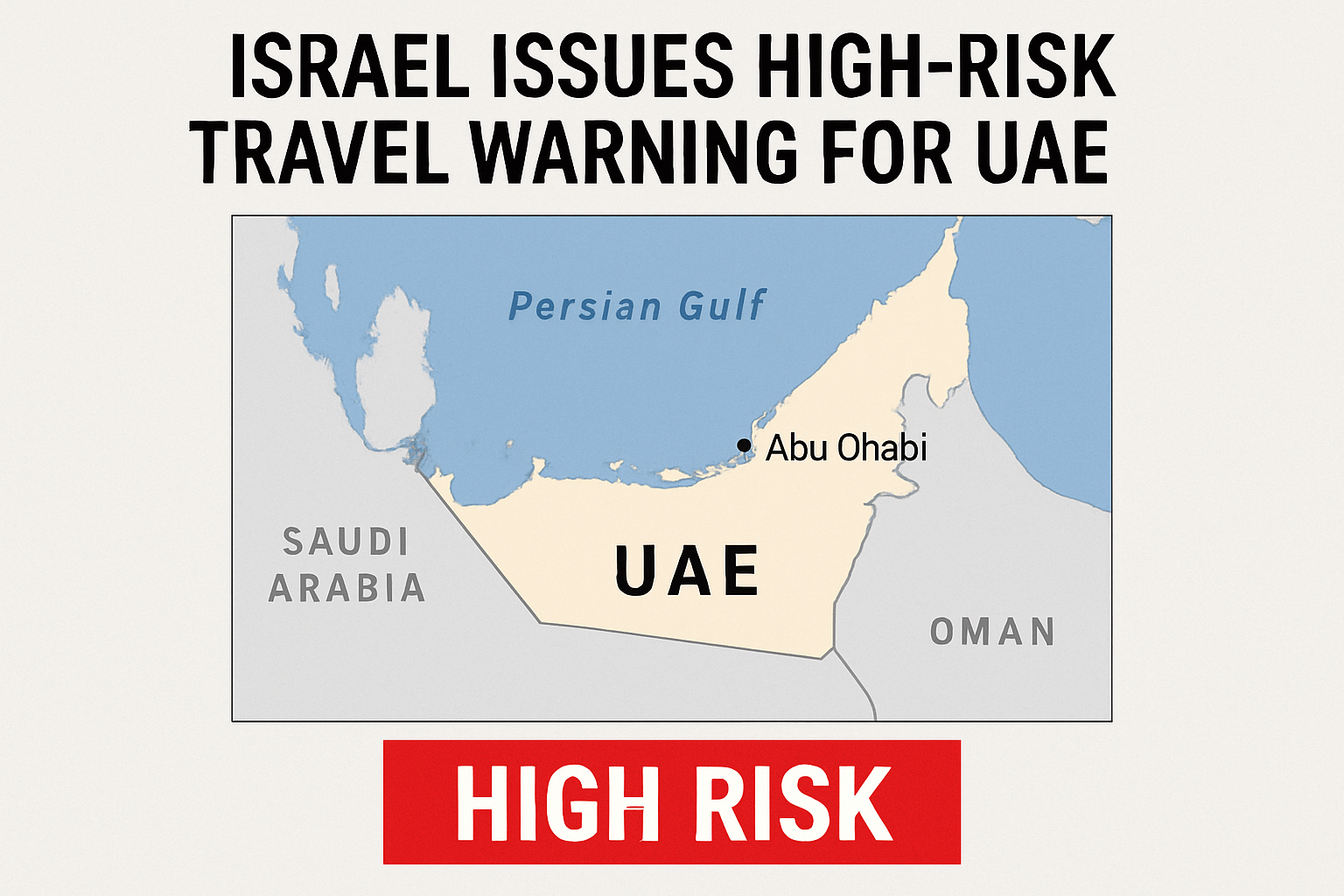In response to escalating regional tensions, Israel’s National Security Council (NSC) has issued a high-risk travel advisory warning Israeli citizens against non-essential travel to the United Arab Emirates (UAE). The advisory, updated in early August 2025, cites an elevated threat of terrorism, particularly from Iran-backed groups such as Hezbollah, Hamas, and other jihadist factions.
The warning follows recent Israeli military operations—including Operation Rising Lion and Operation Iron Swords—that have intensified animosity toward Israel across the region. As the geopolitical situation deteriorates, Israeli travelers and Jewish communities in the UAE may face heightened risks.
Geopolitical Backdrop: Why the UAE Is Now a Focus
The UAE has historically maintained a reputation as a safe and stable Middle Eastern destination, particularly for international travelers. However, Israel’s NSC has noted that the UAE’s normalization of diplomatic ties with Israel—formalized under the Abraham Accords in 2020—has increasingly made the country a target for extremist groups.
Since the signing of the Accords, the UAE has welcomed thousands of Israeli tourists and business professionals, creating closer ties in trade, innovation, and tourism. But this warming relationship has also attracted the ire of anti-Israel entities in the region, particularly pro-Iranian militant networks who view the UAE’s cooperation as betrayal of the Palestinian cause.
Direct Threats to Israeli Citizens
The NSC’s advisory stresses that Israeli nationals and Jewish community sites in the UAE may be specifically targeted, especially during major Jewish holidays and weekends such as Shabbat, when public gatherings increase.
A poignant reminder came earlier this year when a UAE court sentenced three individuals to death for the murder of an Israeli national in 2024. Authorities confirmed that the attack was terrorism-motivated, underlining that even cities like Dubai and Abu Dhabi, considered among the safest globally, are not immune from politically motivated violence.
The advisory also references the humanitarian crisis in Gaza, which has been exploited by extremist factions to rally support and justify anti-Israel actions. With humanitarian criticisms of Israel’s Gaza blockade mounting internationally, groups like Hamas are intensifying propaganda that could lead to targeted attacks abroad—including in countries seen as Israel’s allies.
Ripple Effects on UAE’s Tourism Sector
The travel advisory comes at a time when the UAE’s tourism industry, a key economic pillar, is still recovering from the pandemic. Dubai, known for luxury shopping, futuristic architecture, and world-class events, has been a top choice for Israeli travelers post-Abraham Accords. Israeli tourism surged to over 250,000 visits annually by 2024, according to the Israel Ministry of Tourism.
However, the latest security alert is expected to curtail that momentum, with many Israelis either postponing or cancelling travel plans. This may have economic implications for UAE-based hospitality providers, tour operators, and airlines such as Emirates and flydubai, both of which offer direct connections to Tel Aviv.
There’s concern that the warning will also affect Jewish business travelers, many of whom had begun investing in real estate, trade partnerships, and tech collaborations across the UAE. The advisory could also trigger caution among Western tourists, who might reconsider travel to the Gulf due to the broader instability in the region.
Diplomatic Tightrope for the UAE
The UAE now faces a complex challenge: balancing its diplomatic ties with Israel while managing regional perceptions and protecting its own citizens and visitors. While UAE officials have not commented publicly on the advisory, security measures across high-profile sites have been visibly increased in recent weeks.
Despite the threat, the UAE continues to emphasize safety and resilience, leveraging its extensive internal security apparatus and advanced surveillance systems. Still, experts note that indirect threats from non-state actors—especially those with global terror networks—are difficult to detect and even harder to prevent entirely.
Regional Trends: Travel Advisory Domino Effect?
Israel is not the only country sounding alarms. Governments in the United States, the UK, France, and Australia have recently updated their Middle East travel advisories, warning of rising risks in Gulf nations due to the conflict spillover from Gaza and Iran’s expanding regional influence.
Travel insurance providers have also updated their risk assessments, with many now excluding coverage for trips to high-alert destinations, including parts of the UAE during Jewish festivals or major political events.
What Israeli Travelers Should Know
The NSC advises Israeli citizens currently in the UAE to:
- Avoid public Jewish or Israeli-affiliated gatherings
- Remain discreet about their nationality
- Stay updated through official government travel security alerts
- Register with the Israeli Embassy in Abu Dhabi or Consulate in Dubai
- Refrain from non-essential movement during Shabbat or high-risk holidays
A Tourism Setback With Broader Implications
This advisory underscores how even a well-developed and tourism-friendly country like the UAE can become entangled in the volatile web of Middle Eastern politics. As Israel’s military operations continue and tensions with Iran-backed militias deepen, the security risk landscape is evolving.
While the UAE has long been seen as a neutral ground for business and tourism, current conditions may alter that perception. For now, Israelis are urged to reassess their travel plans, stay informed, and practice heightened caution in a region experiencing rapid political and security shifts.
For more travel news like this, keep reading Global Travel Wire


















